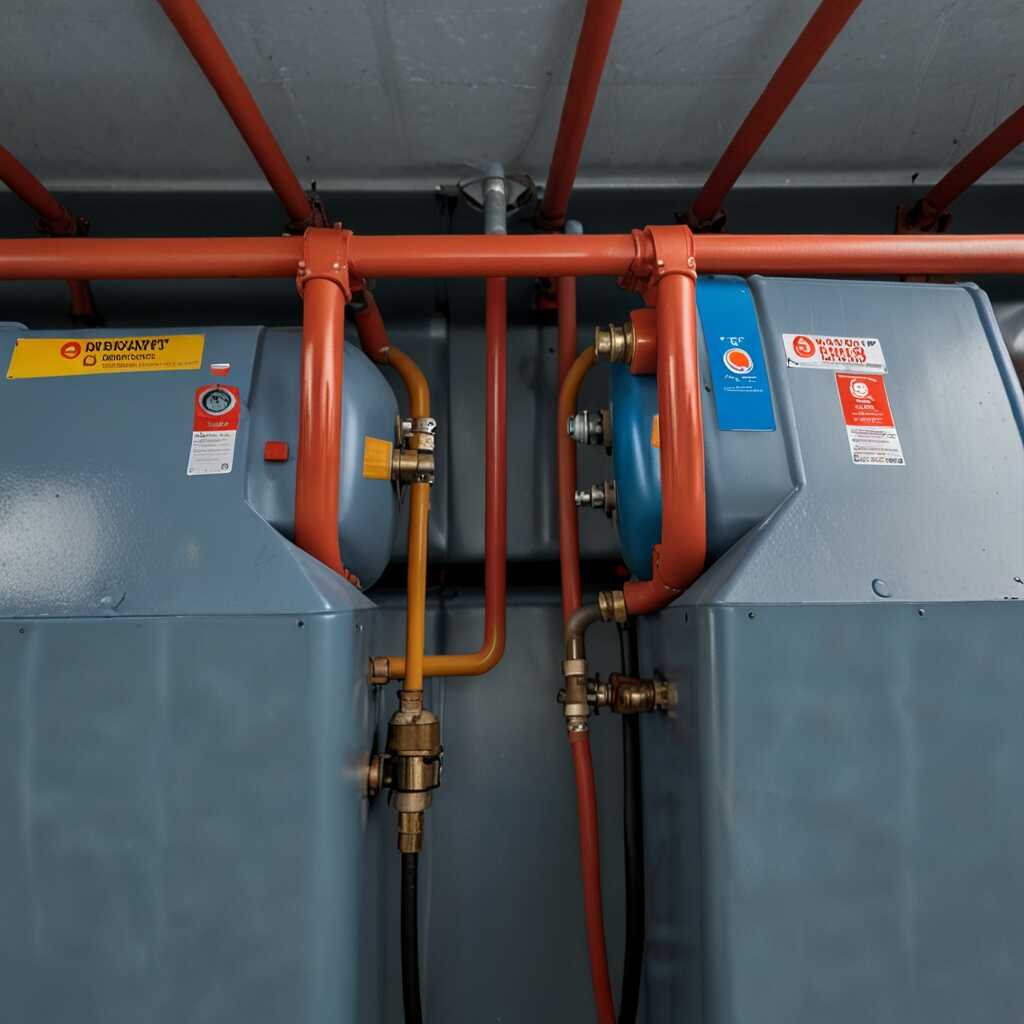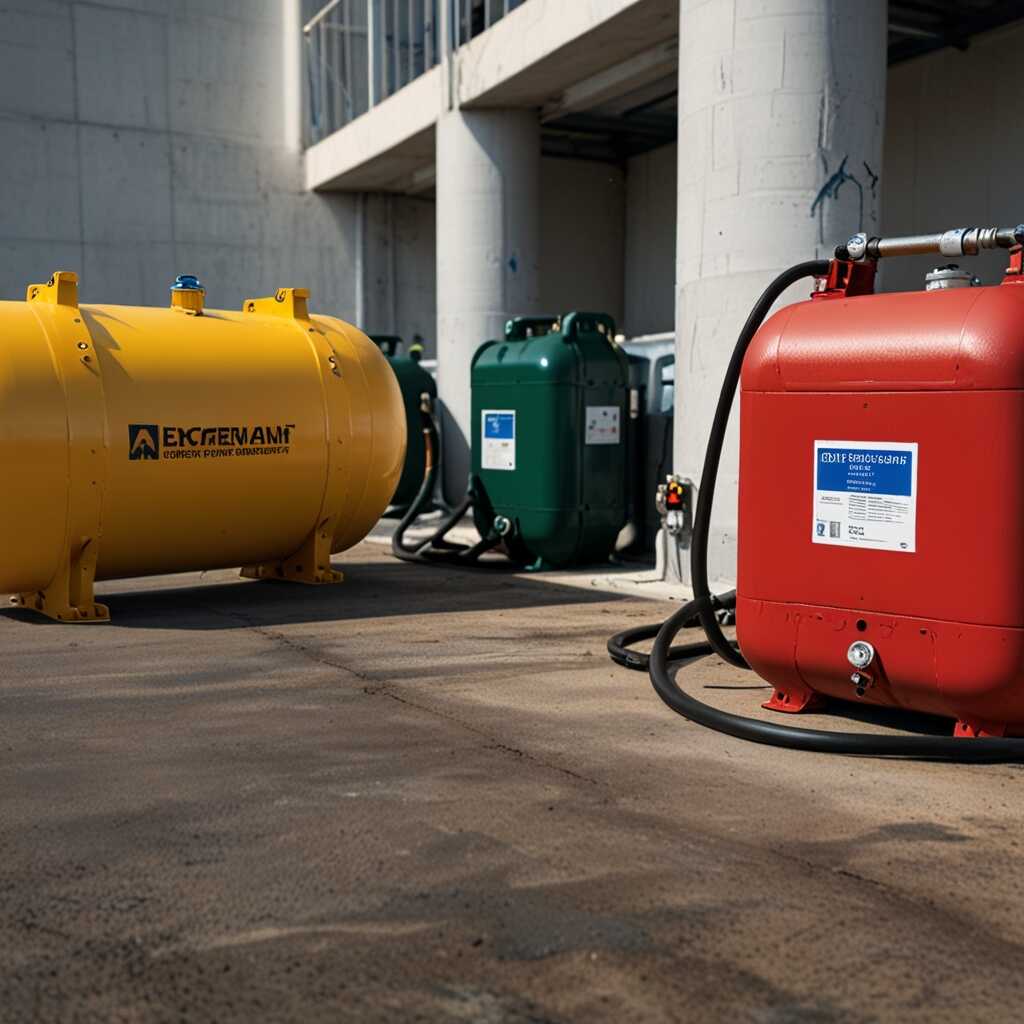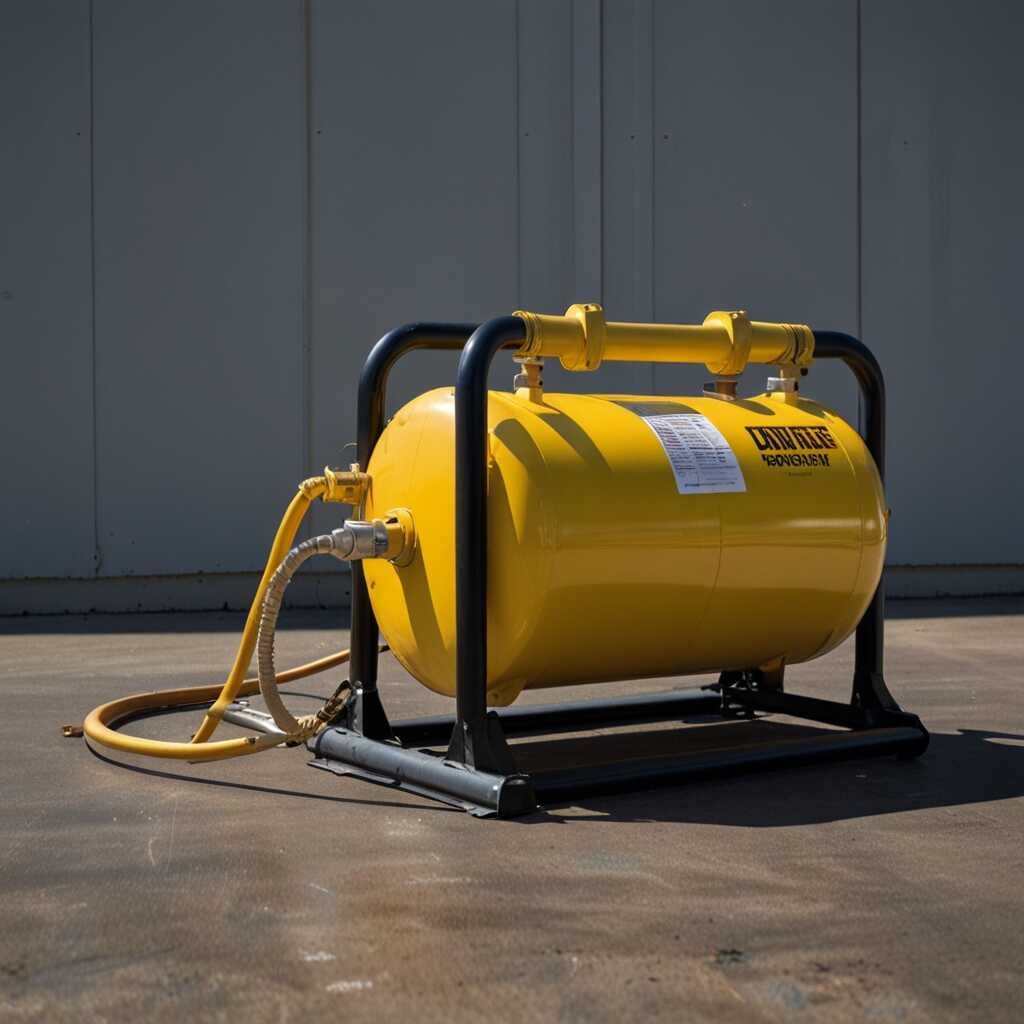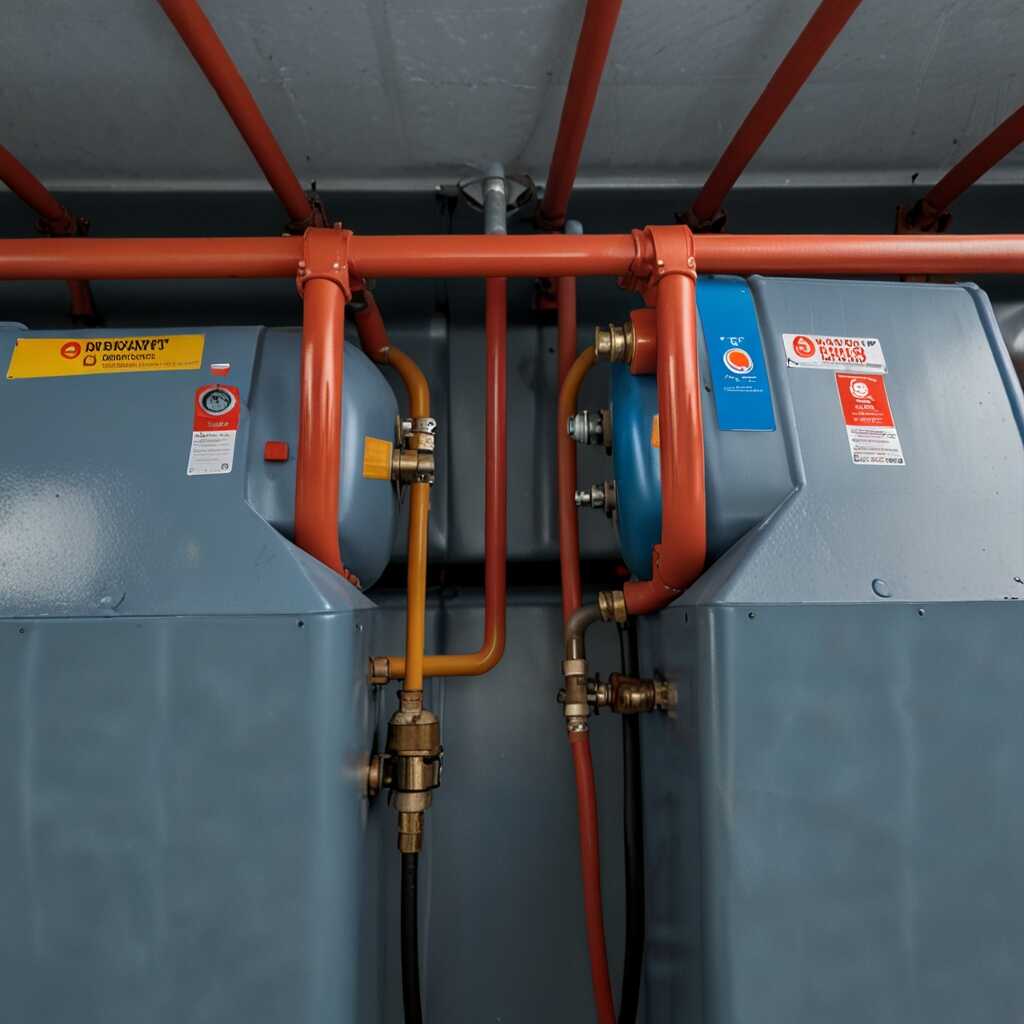Oil-less refrigerant recovery compressors offer significant advantages for HVAC performance and efficiency. These compressors enhance refrigerant recovery processes by eliminating oil contamination, which ensures cleaner and more effective operations. At Refrigerant Recovery Pro, we emphasize the importance of selecting the right equipment to maximize performance and support best practices in refrigerant management. Understanding these benefits helps HVAC technicians achieve better results while adhering to environmental regulations.
Introduction to Oil-less Refrigerant Recovery Compressors
Oil-less refrigerant recovery compressors are distinct due to their lack of oil lubrication, enhancing their reliability and efficiency in HVAC applications. These compressors operate with minimal maintenance, ensuring consistent performance for HVAC technicians. The advantages of oil-less compressors include reduced risk of contamination, easier recovery processes, and improved overall system efficiency. A significant feature contributing to their popularity is their ability to handle various refrigerants, adapting to industry needs. Efficiency ratings of oil-less compressors typically exceed traditional models, making them a preferred choice for HVAC systems.
Exploring the Unique Features of Oil-less Compressors
Oil-less refrigerant recovery compressors come equipped with advanced design features that set them apart. They are engineered for quick and reliable operation without the need for oil changes or maintenance interruptions. These compressors utilize high-quality materials to provide durability and longevity. The ability to perform efficiently across various temperature ranges enhances their reliability. User-friendly interfaces and clear operational indicators allow HVAC technicians to operate them easily and effectively. This combination of features enhances their performance, making them essential for modern refrigerant recovery in the HVAC industry.
Enhanced Operational Efficiency with Oil-less Technology
Oil-less refrigerant recovery compressors significantly improve recovery speeds for HVAC technicians. These compressors eliminate oil contamination, ensuring a high purity of recovered refrigerants. Fewer contaminants in the system lead to faster recovery cycles, minimizing downtime during service calls. For example, oil-less compressors can recover refrigerants up to 50% faster than traditional oil-lubricated compressors. This quicker processing enhances technician performance and increases overall job efficiency.
Key Features Driving Efficiency in Oil-less Compressors
Oil-less compressor technology includes essential features that enhance operational efficiency. These compressors are designed with advanced cooling systems that allow for continuous operation without overheating. Their durable construction can handle high recovery rates, ensuring reliability during demanding tasks. Furthermore, oil-less units have fewer moving parts, which reduces maintenance needs and potential failures over time. This combination of features results in dependable and easy usage for HVAC technicians, contributing to their effectiveness on the job.

Lower Maintenance and Upkeep for HVAC Professionals
Oil-less compressors significantly reduce maintenance requirements for HVAC technicians. They eliminate the need for regular oil changes, which can be messy and time-consuming. This translates to less downtime and more service calls completed. Technicians enjoy enhanced reliability because oil-less designs reduce the risk of oil leaks and contamination, ultimately leading to improved HVAC performance. In equipment reviews, many technicians report lower failure rates with oil-less models. This results in better long-term performance, ensuring that technicians spend less time on repairs and more time servicing clients.
Cost-Effectiveness of Oil-less Compressors
Cost savings are a major advantage of oil-less compressors, as they require minimal upkeep. HVAC professionals can save hundreds to thousands of dollars annually due to reduced service visits and parts replacements. Because oil-less designs perform better over time, they also improve HVAC performance standards. Technicians can rely on these units to deliver quality results without extra costs for maintenance or repairs. By comparing annual operating costs between oil-less and traditional compressors, HVAC professionals can make informed decisions on equipment selection.
Essential Numerical Insights on This Technology
- Oil-less compressors may achieve recovery efficiency ratings above 90%.
- They can recover refrigerant in as little as 15 minutes for small systems.
- Technicians report an average lifespan of over 10,000 operational hours.
- Using oil-less compressors can cut recovery time by up to 50%.
- Oil-less systems can operate effectively in temperatures ranging from -40°F to 140°F.
- Efficiency gains can reduce energy consumption by up to 30% in refrigerant management.
- Many models weigh less than 50 pounds, enhancing portability.

Positive Environmental Impact of Oil-less Compressors
Oil-less refrigerant recovery compressors offer significant environmental benefits. These compressors reduce oil contamination during the recovery process. They meet or exceed regulatory compliance standards set by EPA, ensuring safer refrigerant management. Their design eliminates the need for oil, leading to a lower carbon footprint. Users report quicker refrigerant recovery speeds, leading to improved efficiency, allowing HVAC technicians to work faster and reduce emissions. Studies show that oil-less compressors can enhance recovery efficiency by up to 30% compared to traditional systems.
Compliance and Sustainability in HVAC
Oil-less compressors play a vital role in ensuring compliance with environmental regulations in HVAC. They help HVAC professionals adhere to standards by effectively capturing refrigerant without the risk of oil contamination. This technology reduces waste and promotes sustainable practices. Using oil-less systems aligns with global goals to limit greenhouse gas emissions. Regular testing and performance reviews validate their efficiency and reliability, ensuring they provide long-term benefits to both companies and the environment. Proper training in the use of oil-less technology helps technicians adopt responsible refrigerant management practices.

Evaluating the Cost-effectiveness of Oil-less Systems
Oil-less refrigerant recovery compressors can provide significant financial advantages for HVAC technicians. The initial costs vary depending on the model and brand, but HVAC professionals should compare these upfront costs to long-term savings. Over time, oil-less systems lead to lower maintenance and repair expenses due to their simplified design. By avoiding oil contamination, these systems require fewer repairs and can operate with better reliability. According to industry data, oil-less compressors can enhance energy efficiency by up to 20%, resulting in further operational cost reductions.
Long-Term Savings from Oil-less Compressors
Long-term savings from oil-less compressors are substantial. These compressors require less frequent maintenance and repair, reducing downtime for HVAC technicians. Companies can experience lower operational costs due to improved energy efficiency and decreased refrigerant losses. Moreover, oil-less systems are designed for reliability, which means fewer service calls. HVAC professionals report saving hundreds to thousands of dollars each year due to these efficiencies. Investing in oil-less technologies not only ensures lesser maintenance expenses but also enhances overall system performance over time.
Key Benefits for HVAC Professionals
- Oil-less compressors minimize contamination risk during refrigerant recovery.
- They help enhance operational efficiency, leading to quicker job completions.
- The technology reduces the need for regular oil changes, lowering maintenance costs.
- Using these systems supports eco-friendly refrigerant management practices.
- They typically have fewer moving parts, which translates to increased reliability.
- These compressors afford technicians easier storage due to their compact design.
- Durability helps justify the initial investment over the equipment’s lifespan.

Improving Technician Safety and Work Environment
Oil-less refrigerant recovery compressors significantly enhance technician safety by minimizing noise levels and thermal emissions. These compressors operate at reduced noise levels, typically around 10-15 decibels quieter than traditional models. Less noise leads to a more comfortable work environment, allowing HVAC technicians to focus on their tasks. Additionally, lower thermal emissions help prevent overheating issues, making the workspace more comfortable. The design of oil-less compressors also aligns with reliability standards, ensuring seamless operation during refrigerant recovery. The absence of oil within the system eliminates risks of oil leaks, further improving safety and cleanliness.
Features Enhancing Comfort and Safety
Essential features of oil-less refrigerant recovery compressors contribute greatly to the comfort and safety of technicians. These units often include advanced vibration dampening technology, which minimizes vibrations and reduces fatigue during operation. They are engineered to maintain lower surface temperatures, decreasing the risk of burns during handling. The reliable thermal management systems help enhance performance while preventing overheating, further ensuring a safer work environment. These carefully designed features make oil-less compressors an excellent choice for HVAC technicians, promoting a more enjoyable work experience.
Comparative Analysis of Compressor Technologies
Oil-less compressors provide several advantages over traditional refrigerant recovery compressors. They enhance efficiency by reducing maintenance needs, as they do not require oil changes. Oil-less compressors also deliver consistent performance metrics, as user testimonials frequently highlight reliability and ease of use. Compared to traditional compressors, which can hinder efficiency due to oil contamination, oil-less models are designed for cleaner operations. Users appreciate the fact that oil-less compressors can easily handle various refrigerants without risk of mixing oils, making them a preferred choice in many HVAC applications.
Key Features of Oil-less Refrigerant Recovery Compressors
Oil-less refrigerant recovery compressors come with features designed to improve overall performance. They typically offer a lightweight and portable design that allows HVAC technicians to move them easily across job sites. Many oil-less units feature advanced cooling systems that prevent overheating during extended use, ensuring reliable operation. The ability to quickly recover different types of refrigerants without requiring oil changes enhances their efficiency and reduces downtime. Additionally, the durable construction and high-quality materials used in oil-less compressors contribute to their long service life. These key features make oil-less refrigerant recovery compressors a wise investment for HVAC professionals.
Brands and User Demographics in This Sector
- Brand X offers robust reliability, but it’s heavier than some competitors.
- Brand Y’s lightweight design is great for portability, though it lacks advanced features.
- Technically savvy professionals prefer high-performance models for complex projects.
- Entry-level technicians often benefit from easy-to-use models with simpler controls.
- Commercial HVAC workers focus on efficiency, prioritizing time-saving capabilities.
- Environmental activists support oil-less systems for their lower carbon footprint.
- Educators emphasize teaching best practices around the use of these compressors.
Effective Usage Techniques for Oil-less Compressors
Best practices for using oil-less refrigerant recovery compressors include regular maintenance checks, optimizing recovery time, and ensuring proper connection to the system. These techniques enhance operational efficiency. HVAC technicians should look for features like adjustable recovery rates, built-in filters, and easy portability when selecting compressors. Results from testing compare oil-less models favorably against traditional compressors. They can save technicians up to 30% in recovery time. This improves overall work outcomes significantly.
Key Features to Consider When Selecting Oil-less Compressors
When selecting oil-less refrigerant recovery compressors, technicians should focus on several key features. Look for compressors designed with high-efficiency motors that ensure reliable performance while saving energy. Ease of portability allows for convenient transportation between job sites. Additionally, built-in safety features, such as overpressure protection and thermal cut-off, enhance user safety during operation. Choose models that include clear indicators for refrigerant levels and pressure readings. These elements deliver more accurate results and streamline the recovery process.